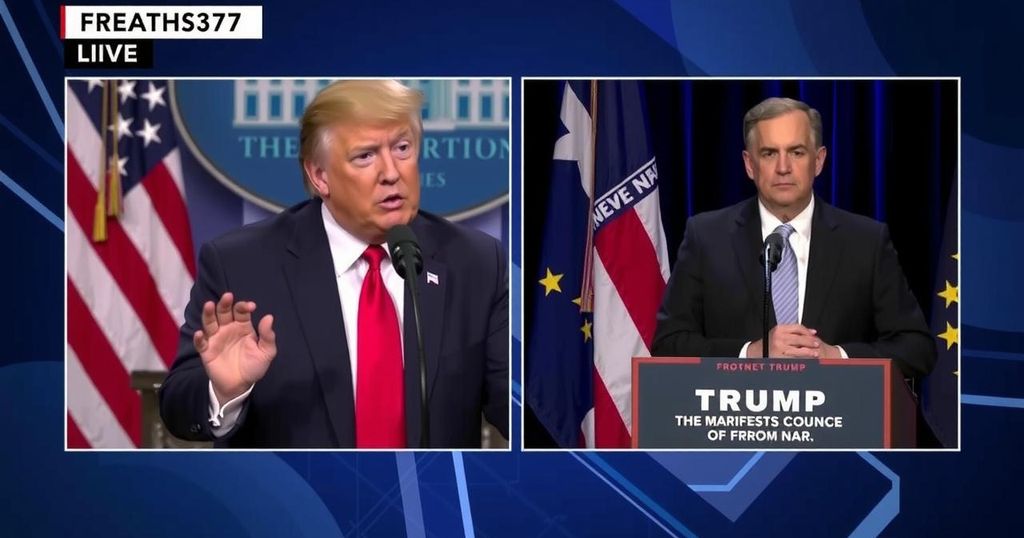Trump’s Foreign Policy Statements: Key Points from the Recent News Conference
During a press conference from Mar-a-Lago, President-elect Donald Trump expressed controversial views on NATO’s relationship with Ukraine, warned of escalating tensions in Gaza, and asserted the U.S. interest in Greenland and the Panama Canal. His comments drew quick responses from international leaders, raising concerns about the direction of U.S. foreign policy under his administration.
In a recent news conference from Mar-a-Lago, President-elect Donald Trump articulated his foreign policy perspectives concerning NATO, Ukraine, Israel, Gaza, Canada, Greenland, and the Panama Canal. He expressed sympathy for Russia’s stance on Ukraine’s NATO membership, stating, “A big part of the problem is, Russia… said, ‘You could never have NATO involved with Ukraine.’” Furthermore, regarding Israel and Gaza, Trump warned that “hell will break out” if a resolution is not reached between Hamas and Israel upon his assumption of office. Trump also suggested that military might might be necessary to secure interests in Greenland and the Panama Canal, asserting the strategic importance of these locations for U.S. national security. He further threatened economic repercussions against Canada, reiterating his past comments about integrating Canada as the 51st U.S. state. International responses have been immediate and defensive, with Canadian Prime Minister Justin Trudeau dismissing the notion and Panamanian officials asserting their sovereignty over the Panama Canal. Overall, Trump’s comments have stirred significant concern among global leaders about U.S. foreign policy directions under his impending administration.
The context of Trump’s press conference revolves around his emerging foreign policy framework as he approaches his term as President of the United States. His comments on NATO reflect longstanding contentions regarding defense spending among NATO allies, a notable theme during his previous presidency. The Ukraine-NATO dynamic has historical implications tied to Russia’s longstanding opposition to NATO’s eastward expansion. Trump’s remarks on Israel and Gaza highlight ongoing tensions in the region, particularly concerning Hamas. His comments about Canada and Greenland underscore a larger dialogue about U.S. territorial ambitions and relations with neighboring countries, while the Panama Canal discussion invokes past U.S. interventions and its strategic importance. These issues point to potential challenges and shifts in U.S. diplomatic relations under Trump’s leadership.
In conclusion, President-elect Donald Trump’s recent remarks during his news conference signal a provocative foreign policy approach that could reshape U.S. relations with NATO, Israel, and neighboring nations like Canada. His controversial statements have drawn backlash from global leaders, suggesting a turbulent start to his administration as they navigate the implications of his policies on international diplomacy and security. As Trump prepares to take office, the world watches closely to see how these signals translate into actual policy and action.
Original Source: www.aljazeera.com




Post Comment